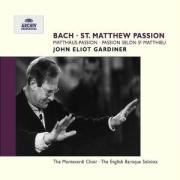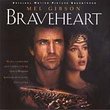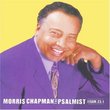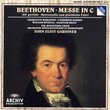| All Artists: Cornelius Hauptmann, Bach:St. Matthew Passion, London Oratory Junior Singers, Olaf Bär, Monteverdi Choir Title: Bach: St. Matthew Passion / Rolfe Johnson, Bonney, von Otter, Chance, Crook; Gardiner Members Wishing: 2 Total Copies: 0 Label: Archiv Produktion Release Date: 10/20/1989 Genre: Classical Styles: Opera & Classical Vocal, Historical Periods, Baroque (c.1600-1750), Sacred & Religious Number of Discs: 3 SwapaCD Credits: 3 UPC: 028942764828 |
Search - Cornelius Hauptmann, Bach:St. Matthew Passion, London Oratory Junior Singers :: Bach: St. Matthew Passion / Rolfe Johnson, Bonney, von Otter, Chance, Crook; Gardiner
 | Cornelius Hauptmann, Bach:St. Matthew Passion, London Oratory Junior Singers Bach: St. Matthew Passion / Rolfe Johnson, Bonney, von Otter, Chance, Crook; Gardiner Genre: Classical
John Eliot Gardiner's reading of the Matthew Passion is conceived and executed on the highest level, an example of period practice that is unlikely to be bettered any time soon. The performance as a whole vibrates with lif... more » |
Larger Image |
CD DetailsSynopsis
Amazon.com essential recording John Eliot Gardiner's reading of the Matthew Passion is conceived and executed on the highest level, an example of period practice that is unlikely to be bettered any time soon. The performance as a whole vibrates with life: soloists are first-rate, and wonderfully well chosen for their respective parts, and the work of chorus and orchestra is exemplary. The recording, made in 1988 in the spacious ambience of Snape Maltings (England), is well balanced and exceptionally vivid. --Ted Libbey Similar CDsSimilarly Requested CDs
|
CD ReviewsIt's a matter of interpretation John McKean | Maine | 12/24/1999 (5 out of 5 stars) "I am one of the many who firmly believe the Matthew Passion is one of mankinds greatest treasures, and I have no problem being quite scrutenous when it comes to reviewing a performance or recording of the work. Other reviews on this site claim Gardiner's performance is too fast, too dry.... lacking the piece's inherant mood of pain and greif. The most advanced field of music theory, Schenkerian analysis, is based on the premesis of prolongations and various levels of harmonic interaction. The Matthew Passion is one of the best examples of prolonged harmonics.... literally harmonic progressions that take hours to complete. Nearly everyone is effected by this, whether conciously or unconciously. Gardiner has an acute sense of these prolonged harmonic progressions and, in order to make them as beautiful and heart-filling as possible, he minipulates the tempo. Those that anylize his performance superficially would find it mediocre. I believe that Bach himself would performed the work in a similar manner. His son, J.C. Bach, made note of the fact that people criticized Bach for performing his pieces too fast. Obviously, Bach would have had an incredible ability to sense long harmonic prolongations, and would therefore probably make a point to accentuate them in his own performance." Still at the top 05/18/2001 (5 out of 5 stars) "More than a decade after its release, this recording remains a benchmark for this sublime work. It may have been joined by the recent Herreweghe as a prime recomendation, but it certainly has not been bettered. Despite what some listeners say on this site, it's far from being only a superficial account. True, it's much faster than Klemperer's classic version, but why should we consider slow as the same as profound? I can think of only one instance of a tempo faster than appropriate here, in "Ich will dir mein Herze schenken", which is anyway lovingly sung by Barbara Bonney. In every other aria, Gardiner's tempos just sound right. Listen, for instance, to how he takes "So ist mein Jesus nun Gefangen" moderately (Herreweghe, Brüggen and Suzuki are noticeably faster) and then releases a furious "Sind Blitze, sind donner" and read the texts. Or notice how the tender and deeply felt singing of Michael Chance in "Erbarme dich", coupled with the gracious violin solo of Elizabeth Wilcock, is exceptionally attuned to the bitter weeping of the lyrics. Gardiner's version is, that's sure, a very dramatic account of the work. Here some may prefer a more contemplative approach, and they would be well served by Suzuki's recent recording. But Gardiner's delivery of the narrative is much more gripping, with an exceptional Evangelist in the voice of Anthony Rolfe-Johnson and some of the most impressive crowd's scenes ever, enhanced by the superb singing of the Monteverdi Choir. Herreweghe's excelent new recording, which is also intensely dramatic (more so in the arias, actually), can't compare to Gardiner's in such moments as when the crowd shouts for the freedom of "Barrabam" and soon after demands Jesus's crucifixion. Gardiner's recording also benefits from a uniformly good team of soloists (Anne Sofie von Otter gives a performance of "Können Tränen" that deserves to be a reference and the Jesus of Andreas Schmidt is outstanding) and the exquisite playing of the English Baroque Soloists. Recent recordings, especially Herreweghe's, tend to smooth the sound with a more legato playing, and certainly many people will prefer this approach, which makes the period instruments sound closer to modern ones. But the clear articulation employed by Gardiner is still a joy to hear, and his ability to draw the most beautiful blend from his players remains unsurpassed." Among the top 4 Archimedes | Pennsylvania | 03/30/2005 (4 out of 5 stars) "The Matthauspassion of J.S. Bach is among the world's greatest masterpieces of music, and Gardiner's Monteverdi Choir is one of the most professional choirs singing today, so right there we're starting off with an advantage.
The great opening Chorus for double-chorus and a children's choir of trebles is a masterpiece within a masterpiece. (Gardiner uses a children's chorus containing girls, an unusual choice.) However, there are problems. Gardiner seems more concerned with the choral parts --sticking to the strengths of his ensemble-- than the solo movements. The choruses, chorales and turbae (the short choral statements where the chorus speaks for the crowd, e.g. "crucify him!") are done well and with energy, smoothness, ensemble, and beautiful chording. But Gardiner seems to hurry through the solos to get to the choruses. In my humble opinion, the Passion has both a dramatic character as well as a reflective character. When you hear it for the first time, it's the drama that grabs you. On subsequent hearings (esp. if you subscribe to the religious and spiritual beliefs presented in this work) it is the reflection that appeals to one, certainly to me. And at the time of this recording, Gardiner seems not to have been sympathetic to the reflective character of the work. If you're preoccupied with "Let's not get sentimental about this," this is what you'd produce. May I be forgiven for imagining that this is British Stiff Upper-Lip taken a little too far? The tempi are a tad too fast in general. However, look on the bright side: Gardiner emphasizes the drama beautifully. This is a good choice for young people exploring Bach for the first time. The soloists are excellent, especially Cornelius Hauptmann, who does a wonderful job of "Mache Dich mein Herze rein," --make Thou my heart pure. In spite of Gardiner's hurrying, Hauptmann sings a tender, heartfelt aria that is a highpoint of the work. Other beautiful moments are 1. the contralto aria "Buss und Reu," where Bach's representation of teardrops are performed beautifully, 2. the solo+chorus number Ïch will bei meinem Jesu wachen. (Count the number of entries of the choral interjection, whose translation is roughly "So rest my cares . . ." there should be exactly 11, one for each remaining disciple.) 3. the chorale, O Mensch, bewein dein Sundre gross. Unforgettable; 4. the last piece, a lullaby and a dirge for the dead Jesus. Arch" |

 Track Listings (29) - Disc #1
Track Listings (29) - Disc #1









